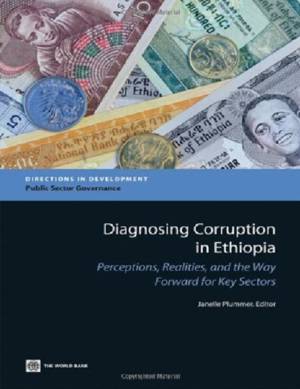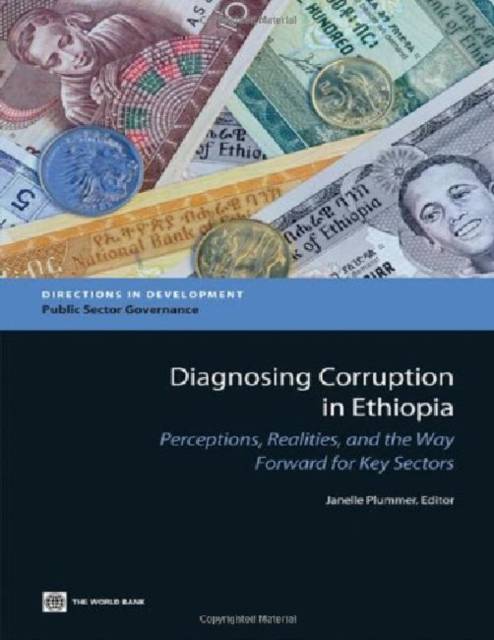
Door een staking bij bpost kan je online bestelling op dit moment iets langer onderweg zijn dan voorzien. Dringend iets nodig? Onze winkels ontvangen jou met open armen!
- Afhalen na 1 uur in een winkel met voorraad
- Gratis thuislevering in België vanaf € 30
- Ruim aanbod met 7 miljoen producten
Door een staking bij bpost kan je online bestelling op dit moment iets langer onderweg zijn dan voorzien. Dringend iets nodig? Onze winkels ontvangen jou met open armen!
- Afhalen na 1 uur in een winkel met voorraad
- Gratis thuislevering in België vanaf € 30
- Ruim aanbod met 7 miljoen producten
Zoeken
Diagnosing Corruption in Ethiopia
Perceptions, Realities, and the Way Forward for Key Sectors
€ 67,95
+ 135 punten
Omschrijving
For decades, corruption in Ethiopia has only been discussed at the margins. Perhaps because many have not experienced corruption as a significant constraint to their lives and businesses, or perhaps because a culture of circumspection has dampened open dialogue, Ethiopia has neither seen the information flows nor the debate on corruption that most other countries have seen in recent years. This study attempts to fill this information gap. Conducted by the World Bank (with financial support from the UK, the Netherlands and Canada) in conjunction with the Federal Ethics and Anti-Corruption Commission of Ethiopia (FEACC), the study is an independent overview of corruption. It attempts to map the nature of corruption in eight sectors in the country. The studies focuses on three key objectives: (i) to develop sector frameworks that enable mapping of the potential areas of corruption on a sector-by-sector basis; (ii) to map the different forms, and types of corrupt practices in the selected sectors; and (iii) to consider the higher risk areas and identify appropriate sector or cross cutting responses for Government and other stakeholders. The sectors covered are health, education, water, justice, construction, land, telecommunications and mining.
Specificaties
Betrokkenen
- Uitgeverij:
Inhoud
- Aantal bladzijden:
- 444
- Taal:
- Engels
- Reeks:
Eigenschappen
- Productcode (EAN):
- 9780821395318
- Verschijningsdatum:
- 22/06/2012
- Uitvoering:
- Paperback
- Formaat:
- Trade paperback (VS)
- Afmetingen:
- 152 mm x 229 mm
- Gewicht:
- 589 g

Alleen bij Standaard Boekhandel
+ 135 punten op je klantenkaart van Standaard Boekhandel
Beoordelingen
We publiceren alleen reviews die voldoen aan de voorwaarden voor reviews. Bekijk onze voorwaarden voor reviews.










